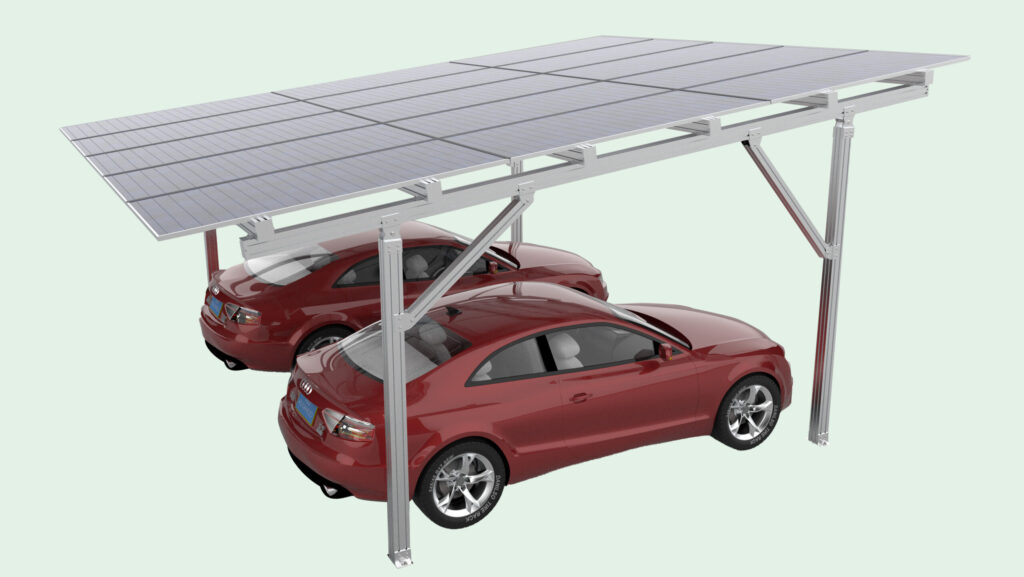Solar panels are greatly affected by air pressure in high-altitude areas. When maintaining them, the following key points should be noted:
Maintenance of equipment insulation performance: In high-altitude areas, the air is thin and the air pressure drops, weakening the insulation capacity of the air. At the same time, ultraviolet radiation increases and the temperature difference between day and night is large, which will cause the organic insulation materials of the equipment to age faster and reduce the insulation performance. Therefore, it is necessary to regularly inspect the insulation condition of solar panels and related electrical equipment, promptly identify and replace aged or damaged insulation components to prevent discharge breakdown or equipment damage.
Heat dissipation performance maintenance: A decrease in air pressure will affect the heat dissipation capacity of the equipment. When the solar irradiation intensity is strong during the day, the operating environment temperature of the equipment increases, while the air density decreases, the heat dissipation capacity drops, and the temperature rise of key components increases. To ensure that the heat dissipation channels of the solar panels are unobstructed, clean the dust and debris on the heat sinks, fans and other heat dissipation components to guarantee the heat dissipation effect. For equipment equipped with a cooling system, it is necessary to check the working condition of the cooling system, such as whether the coolant is sufficient and whether the fan is operating normally.
Sealing performance maintenance: In high-altitude areas, the temperature difference between day and night is large and the temperature changes rapidly. Condensation is prone to occur on the surface of the equipment, causing a sharp drop in insulation strength and leading to insulation breakdown or short circuit. Meanwhile, for outdoor equipment with high IP protection levels, as the temperature changes rapidly between day and night and the intensity of solar radiation increases, the mechanical properties such as hardness, tensile strength and elongation of plastic structural components and rubber sealing parts will decline to varying degrees, generating mechanical stress and even causing material deformation, which affects the structural stability and reliability of the equipment. Moreover, due to the significant change in the pressure difference between the inside and outside of the sealed box-type structure, the force relationship between the inner and outer cavities of the sealed structure will be reconstructed, increasing the risk of gas or liquid leakage, and the IP protection level of the equipment may decline. It is necessary to regularly inspect the sealing parts of solar panels and related equipment, such as junction boxes and boxes, to ensure good sealing and prevent moisture, dust and other substances from entering the interior of the equipment. If the seals are found to be aged or damaged, they should be replaced in time.
Maintenance of equipment structure and mechanical stability: Mechanical stress caused by temperature changes may lead to deformation of the equipment structure, affecting the installation Angle and stability of solar panels, and thereby influencing the power generation efficiency. It is necessary to regularly inspect the bracket structure of solar panels to ensure it is firm and reliable, without any loosening or deformation. Check whether the installation bolts are tight. If any are loose, tighten them in time. At the same time, pay attention to observing whether there are any cracks, damages or other problems on the surface of the solar panels, and repair or replace them in time.
Electrical performance monitoring and maintenance: Changes in air pressure may affect the electrical parameters of electrical equipment, such as voltage and current. The electrical performance of solar panels should be regularly tested, including open-circuit voltage, short-circuit current, maximum power point and other parameters, to ensure that their output performance meets the requirements. Professional electrical testing equipment is used for inspection, and the inspection data is recorded for analysis and comparison. If any abnormal electrical performance is found, the cause of the fault should be promptly investigated and repaired or the faulty components replaced.
Dealing with the impact of neutron radiation: The situation of memory soft errors caused by neutron radiation is more severe in high-altitude areas. For the control systems of electrical equipment, if such errors occur, it may lead to equipment alarms and crashes at the least, and at the worst, it may cause incorrect control instructions of the equipment, resulting in permanent damage to the equipment. It is necessary to pay attention to the operation status of the solar panel control system, install corresponding monitoring and protection devices, and promptly detect and handle abnormal situations caused by neutron radiation. Regularly upgrade and optimize the software of the control system to enhance its anti-interference ability and stability.


